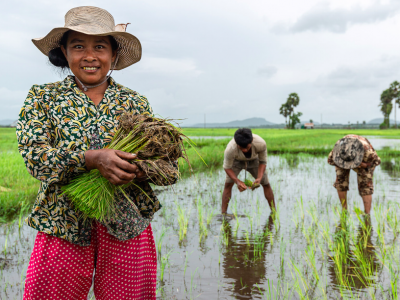Event: Webinar on mainstreaming gender equality in NDCs

On Tuesday18 February at 8:00 AM EST, the UNDP NDC Support Programme and FAO-UNDP “Integrating Agriculture in National Adaptation Plans” (NAP-Ag) Programme are co-organizing a webinar on mainstreaming gender in adaptation planning for the agriculture sectors. The webinar is following the recently published Training guide: Gender in adaptation planning for the agriculture sectors that is based on the gender activities carried out by the NAP-Ag programme on mainstreaming gender to support countries in their adaptation planning processes.
Registration for the webinar is available online and the agenda for the webinar is the following:
- Introduction – Verania Chao, Programme Specialist, Gender and Climate Change (UNDP)
- Improving capacity to mainstream gender into adaptation planning – Sibyl Nelson, Gender Advisor, Climate and Environment Division (FAO)
- Mainstreaming gender in regional climate change adaptation plans: Example from The Philippines – Thea Bohol, Gender Mainstreaming Specialist (FAO The Philippines)
- Linkages between NDCs and NAPs for gender-responsive adaptation actions – Rohini Kohli, Lead Technical Specialist, National Adaptation Plans (UNDP)
- Q&A session
The Gender-Responsive Component of the NDC Support Programme is supporting the work in ten countries at the moment to ensure that gender equality aspects, and the role of women as actors contributing to the Paris Agreement are factored into the governance, planning and climate policy instruments of the NDC planning and implementation processes.
As such, the UNDP NDC Support Programme is hosting a webinar series on mainstreaming gender equality within NDCs. The objective of the series is to provide government representatives, project implementers and climate change technical experts more background on entry points and associated tools, such as a gender analysis, gender data and indicators, gender-responsive budgeting and climate finance, in order to integrate gender equality considerations more comprehensively within their national climate actions, particularly the NDC process.